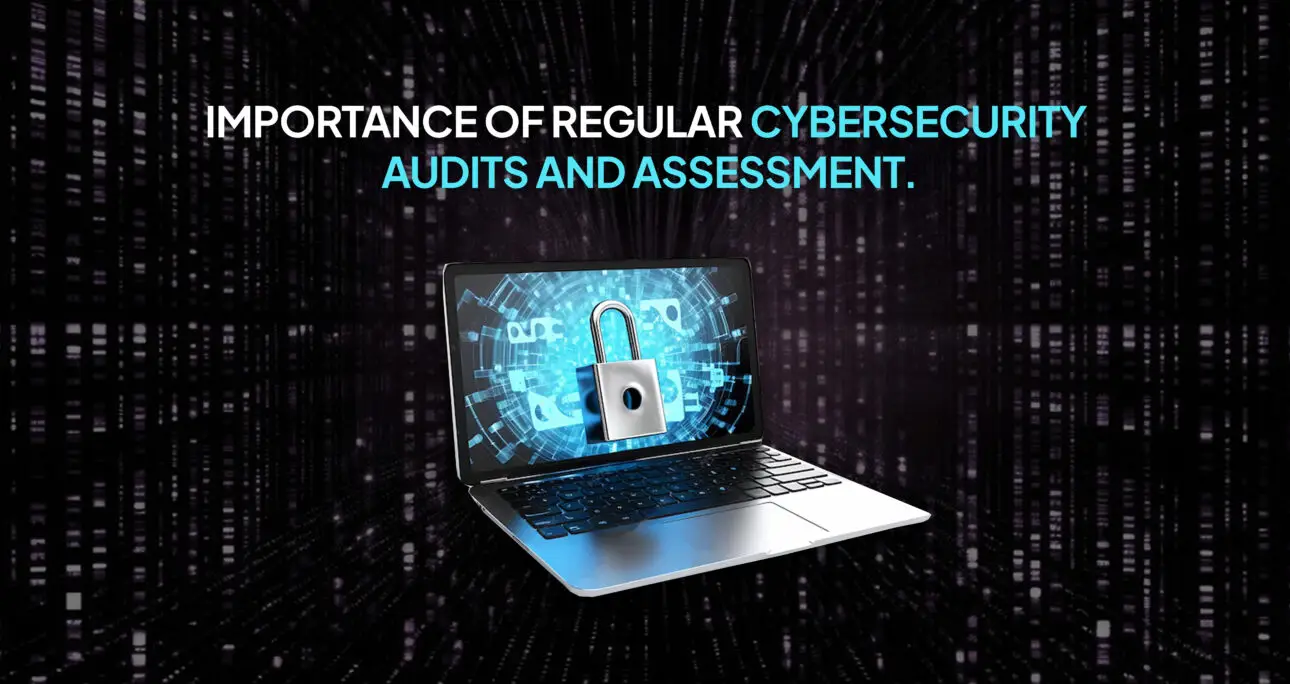In the digital age, businesses and organizations are becoming increasingly reliant on technology. Whether it is managing data, communicating with clients, or handling financial transactions, every sector is deeply embedded in the digital space. But with great power comes great responsibility. As our reliance on technology grows, so do the risks that come with it. In the UAE, where businesses and government entities are rapidly embracing digital transformation, cybersecurity has become a critical concern. One of the most effective ways to protect against cyber threats is by conducting regular cybersecurity audits and assessments.
For businesses across the UAE, the stakes are higher than ever. The rapid digitalization of this region makes it an attractive target for cybercriminals. But why exactly are cybersecurity audits so important, and how do they protect businesses from these growing threats?
What Is a Cybersecurity Audit?
A cybersecurity audit is an evaluation of a company’s information security practices. It involves reviewing IT systems, policies, and procedures of a company to identify potential vulnerabilities and ensure compliance with regulatory standards. Consider it a full check-up for your digital infrastructure. The goal is to assess the effectiveness of your cybersecurity controls and identify any weaknesses that could potentially lead to a data breach or cyberattack.
Unlike a one time security assessment, which may focus on a specific area, a cybersecurity audit covers all aspects of your digital infrastructure. It is a proactive measure that helps you detect problems before they escalate into serious security breaches. Given the ever-changing nature of cyber threats, regular audits are essential for keeping your business safe.
Why Are Regular Cybersecurity Audit Important?
1. Identify and Fix Vulnerabilities
One of the most compelling reasons to conduct regular cybersecurity audits is to identify vulnerabilities in your systems. Cyber threats are evolving constantly. New malware, viruses, and hacking techniques are developed every day, and what worked as a defense yesterday might not be effective today.
A regular audit allows you to stay ahead of these emerging threats by identifying weak points in your security infrastructure. For example, outdated software, misconfigured firewalls, and weak passwords are common vulnerabilities that cybercriminals can exploit. An audit will highlight these risks so you can take action before they lead to a data breach.
In the UAE, businesses of all sizes are vulnerable to cyberattacks. Whether you’re a small startup or a multinational corporation, it’s essential to have a proactive cybersecurity strategy. Regular audits are a key part of that strategy, ensuring that your systems are always prepared to withstand the latest threats.
2. Ensure Compliance with UAE Cybersecurity Regulations
In the UAE, cybersecurity is not just about protecting your business, it is also about complying with local laws and regulations. The UAE government has introduced a range of cybersecurity standards and guidelines to protect sensitive data and ensure the integrity of digital systems. One of the most important is the UAE National Cybersecurity Strategy, which outlines best practices for safeguarding digital infrastructure.
Companies that handle sensitive data, particularly in sectors like finance, healthcare, and government, must comply with specific cybersecurity regulations. Failing to meet these standards can result in heavy fines, reputational damage, and even legal action. Regular cybersecurity audits ensure that your business is in compliance with all relevant regulations, helping you avoid costly penalties and stay on the right side of the law.
For example, the UAE Information Assurance Standards (IAS) is a set of guidelines designed to protect critical information infrastructure. Regular audits ensure that businesses are meeting these standards and implementing the necessary security measures to protect sensitive data. By conducting frequent audits, you can rest assured that your business is compliant with UAE regulations and prepared for any security challenges that may arise.
3. Prevent Financial Losses Due to Cyberattacks
Cyberattacks are costly. The financial damage from a data breach can be devastating, especially for small and medium-sized businesses. In addition to the immediate costs of fixing the breach, there are long-term consequences such as loss of revenue, legal fees, and reputational damage.
According to studies, the average cost of a data breach can run into millions of dirhams. In the UAE, where businesses are heavily reliant on digital infrastructure, the financial impact of a cyberattack can be even more severe. Regular cybersecurity audits help prevent these costly incidents by identifying risks before they lead to a breach.
By investing in audits, businesses can save money in the long run. It is much more affordable to fix vulnerabilities during an audit than it is to recover from a full scale cyberattack. Regular assessments ensure that your business is always prepared for potential threats, reducing the likelihood of a costly breach.
4. Build Trust with Clients and Partners
In today’s business world, trust is everything. Clients, partners, and stakeholders need to know that their data is safe with you. A single data breach can shatter that trust, leading to lost business and damaged relationships. This is especially true in the UAE, where businesses often deal with high-value transactions and sensitive customer information.
By conducting regular cybersecurity audits, you demonstrate to clients and partners that you take data protection seriously. An audit shows that your business is proactive about its security measures, which can be a significant selling point. In fact, many companies now require their partners to provide proof of regular cybersecurity audits before entering into contracts. This is especially essential in businesses such as finance and healthcare, where data security is critical.
Regular audits not only protect your business from cyber threats but also enhance your reputation as a reliable and trustworthy partner. In a competitive market like the UAE, this can give you a significant edge over competitors who don’t prioritize cybersecurity.
5. Stay Up-to-Date on the Latest Cybersecurity Threats
The cybersecurity landscape is constantly changing. New threats emerge regularly, and businesses must adapt to stay protected. Regular cybersecurity audits help you stay ahead of the curve by keeping you informed about the latest threats and vulnerabilities.
For example, in recent years, ransomware attacks have become increasingly common, with businesses around the world falling victim to this malicious form of cybercrime. Regular audits can help you implement defenses against these types of attacks, ensuring that your business is prepared for the latest trends in cybercrime.
Additionally, an audit provides valuable insights into your current cybersecurity measures. Are your firewalls up to date? Are your employees following best practices for password management? Regular assessments allow you to identify areas where your security practices may be falling behind and make the necessary adjustments.
The Cybersecurity Audit Process: A Step-by-Step Guide
So, how exactly do you conduct a cybersecurity audit? While the process may differ based on the size and complexity of your business, most audits have a similar framework.
Below is a step-by-step guide to what a typical cybersecurity audit looks like:
1. Initial Assessment
The first step in any cybersecurity audit is a thorough assessment of your current security practices. This includes assessing the IT infrastructure, software, and hardware for problems or weaknesses.You will also need to evaluate your current policies and procedures to ensure they align with best practices for data protection.
2. Risk Assessment
Once you have conducted the initial assessment, the next step is to evaluate the risks your business faces. This involves identifying potential threats, such as malware, phishing attacks, and insider threats, and assessing their likelihood and potential impact on your business.
3. Vulnerability Testing
After identifying potential risks, it is time to test your systems for vulnerabilities. This may involve running penetration tests, vulnerability scans, and other forms of testing to identify weak points in your network. These tests will highlight areas where your security measures may be lacking, such as outdated software or poor password policies.
4. Compliance Review
As part of the audit, you will need to review your business compliance with relevant regulations. In the UAE, this includes ensuring that your cybersecurity practices align with the UAE National Cybersecurity Strategy and the UAE Information Assurance Standards. This step is essential for avoiding penalties and ensuring your business is operating within the legal framework.
5. Report and Recommendations
Once the audit is complete, you will receive a detailed report outlining any vulnerabilities or areas for improvement. This report will also include recommendations for strengthening your cybersecurity defenses. It is essential to take these recommendations seriously and implement any necessary changes to ensure your business remains secure.
Conclusion
By investing in regular cybersecurity audits, you are not only protecting your business today but also preparing it for the challenges of tomorrow. In a world where cyber dangers are always developing, maintaining one step ahead is essential. Regular audits are the key to ensuring that your digital infrastructure is secure, your data is protected, and your business is ready for whatever the future holds.





